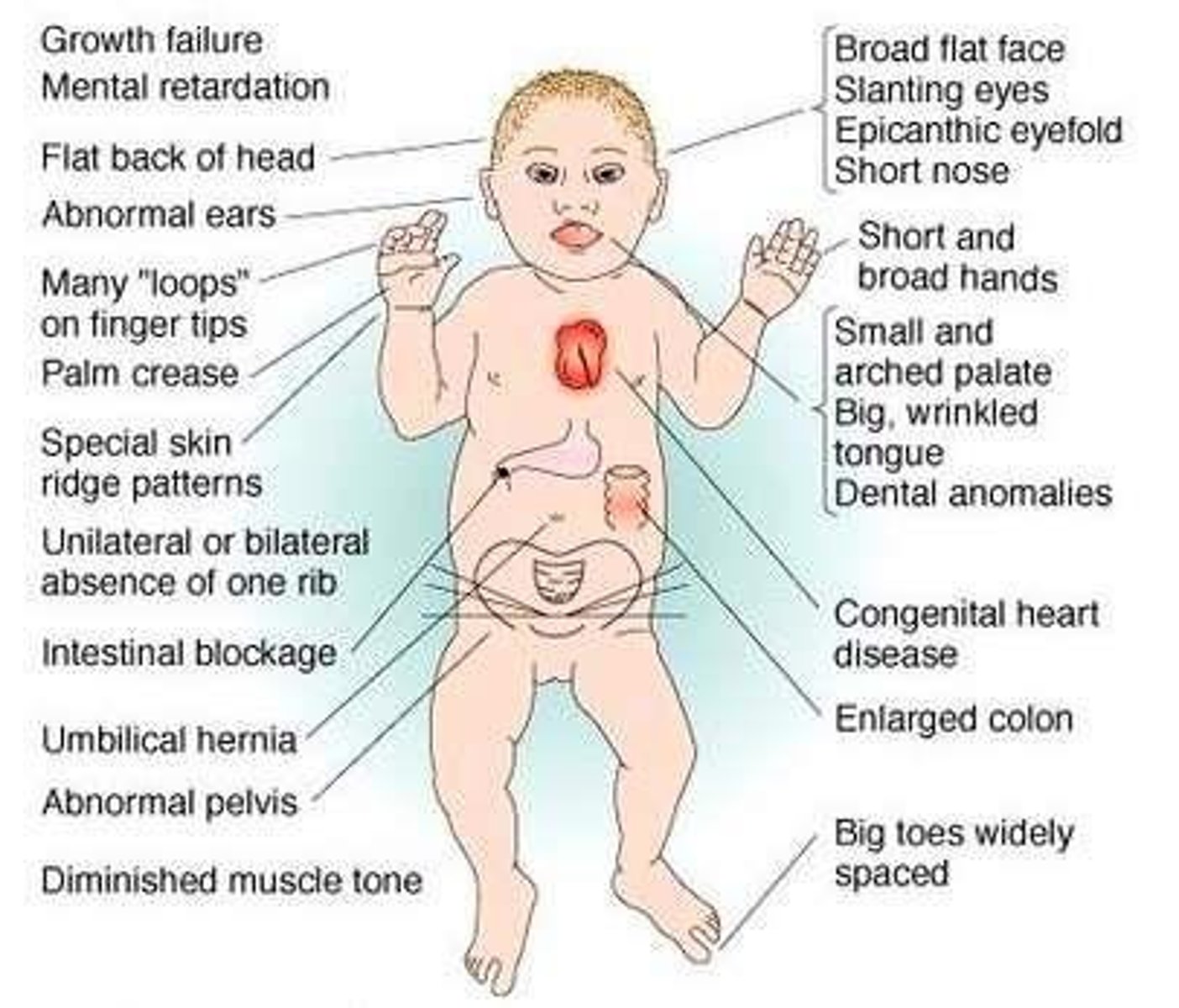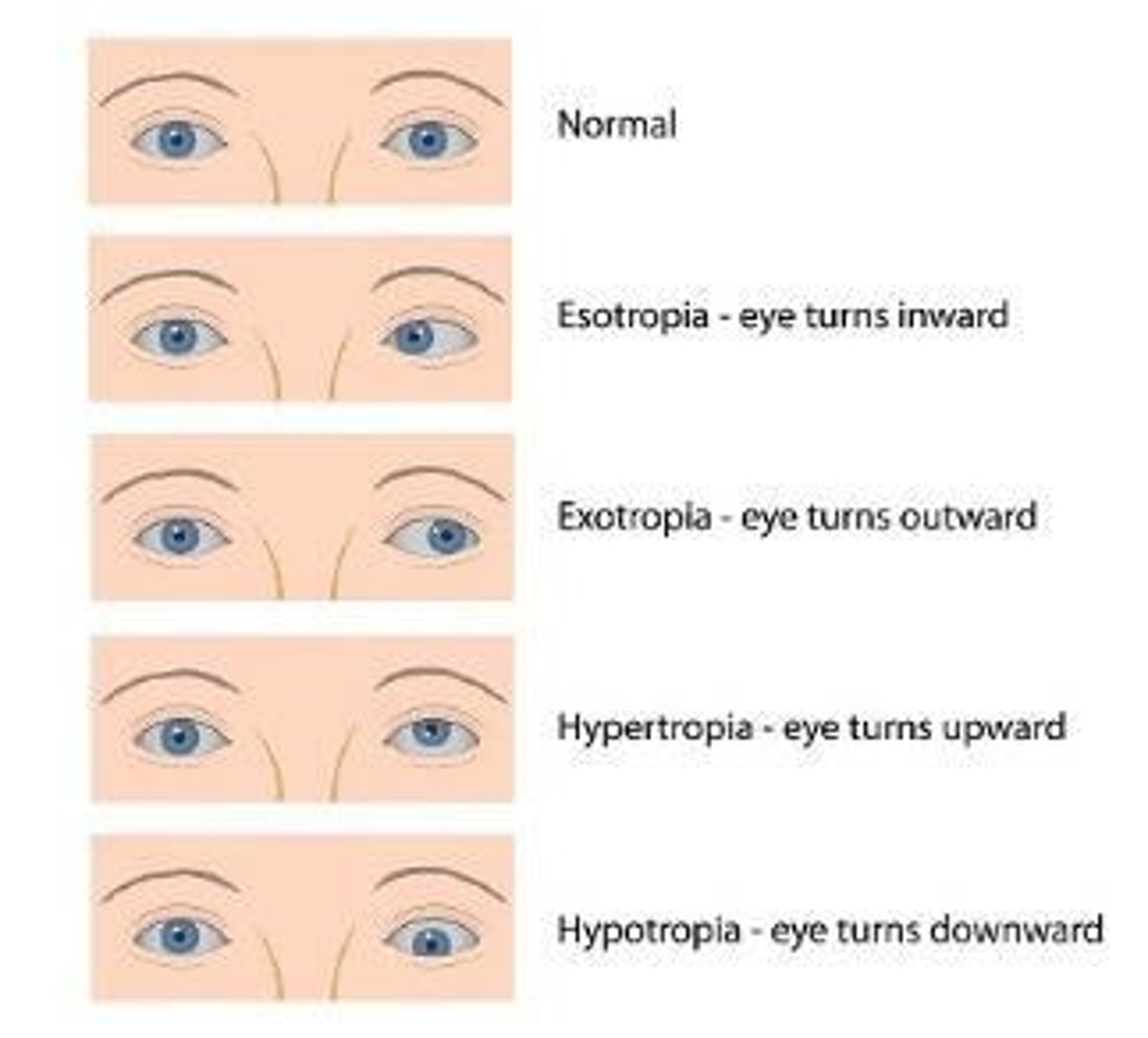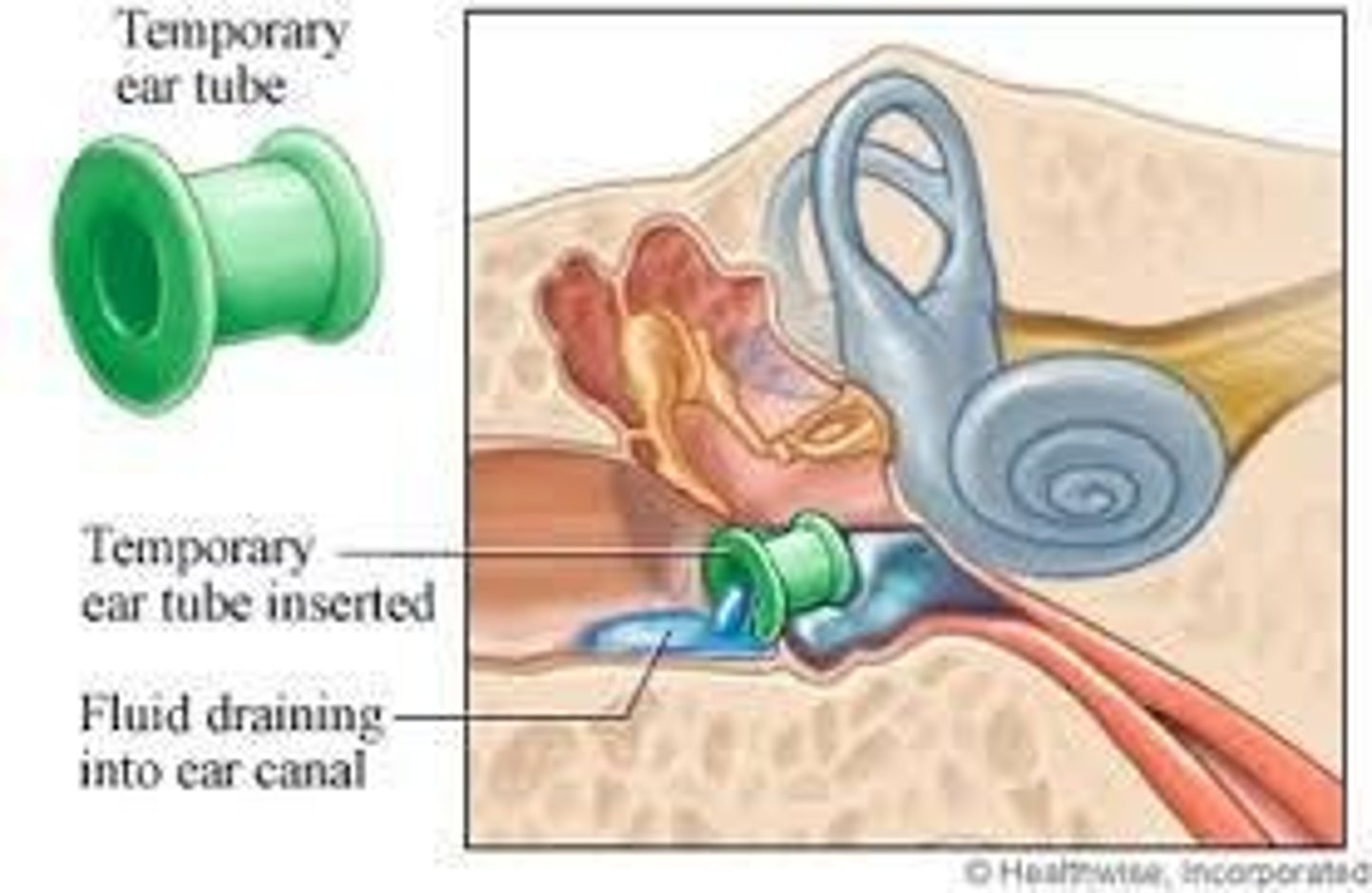Pediatric Skin, Ear, and Developmental Care: Down Syndrome, AOM, ADHD, and Skin Disorders
1/23
There's no tags or description
Looks like no tags are added yet.
Name | Mastery | Learn | Test | Matching | Spaced |
|---|
No study sessions yet.
24 Terms
What are the key principles of palliative care for children?
Respect for the child's goals, acknowledgment of caregiver concerns, provision of comprehensive care, and competent ethical care.
What are common physical manifestations of Down Syndrome?
Separated sagittal suture, enlarged anterior fontanel, small round head, flattened forehead, short broad neck, hypotonicity, protruding abdomen, hyperflexibility, and incurved fifth finger.

What are some management strategies for feeding difficulties in children with Down Syndrome?
Swaddling to prevent heat loss, assisting with feeding due to protruding tongue, rinsing the mouth when dry, and monitoring intake.
What is strabismus and its manifestations?
Strabismus is misalignment of the eyes, with manifestations including abnormal corneal light reflex, misaligned eyes, squinting, head tilting, headaches, and photophobia.

What is the treatment for recurrent Acute Otitis Media (AOM)?
Myringotomy and placement of tympanoplasty tubes, follow-up every 6 months, and antibiotics like amoxicillin or azithromycin.

What are the signs of hearing impairment in infants?
Lack of startle reflex, failure to respond to noise, and absence of vocalization by 7 months.
What are the signs of hearing impairment in children?
Using gestures instead of talking after 15 months, failure to develop understood speech by 24 months, and speaking loudly for the situation.
What classroom strategies are effective for children with ADHD?
An orderly environment, reduced homework, visual aids, morning scheduling for subjects, intermingling activities, and regular breaks.
What is the first step in pharmacologic pain management?
Using nonopioid medications and NSAIDs for mild pain.
What nursing care is essential for managing major burns?
Monitor urine output, prevent hypothermia, provide high-protein nutrition, manage pain, and ensure fluid replacement.
What is the pathophysiology of diaper dermatitis?
A nonimmunologic response to skin irritants leading to skin hydration disturbance and breakdown due to prolonged exposure to urine and feces.
What are the prevention strategies for diaper dermatitis?
Use topical ointments, change diapers frequently, and avoid harsh soaps and wipes.
What is the nursing care for conjunctivitis?
Keep the eye clean, use warm compresses, instill medication after cleaning, and practice good hygiene to prevent infection spread.
What are standard precautions in infection control?
Basic hygiene practices including handwashing and using personal protective equipment as necessary.
What are transmission-based precautions?
Precautions based on the mode of transmission: airborne, droplet, and contact precautions.
What are common skin conditions in pediatrics?
Impetigo, tinea capitis, scabies, tinea cruris, and cradle cap (seborrheic dermatitis).
What is the recommended dietary management for constipation in children?
A high-fiber diet and adequate fluid intake.
What are the signs of obesity in children with Down Syndrome?
Monitoring caloric intake, height and weight, and physical activity.
What are the nursing interventions for atopic dermatitis?
Skin hydration, use of topical corticosteroids, oral antihistamines, and frequent cleansing of skin folds.
What are the signs of pain in children?
Changes in behavior, facial expressions, and physical responses such as crying or withdrawal.
What is the role of a humidifier in managing dry skin in children?
It helps to maintain moisture in the air, benefiting children with extremely dry skin.
What should be done to prevent infection in children with major burns?
Administer 100% oxygen, monitor vital signs, and maintain a sterile environment.
What are the effects of prolonged diaper wearing on skin health?
It increases skin pH and activates fecal enzymes, leading to skin maceration and breakdown.
What are the signs of photophobia in children?
Sensitivity to light, squinting, or closing one eye to reduce light exposure.